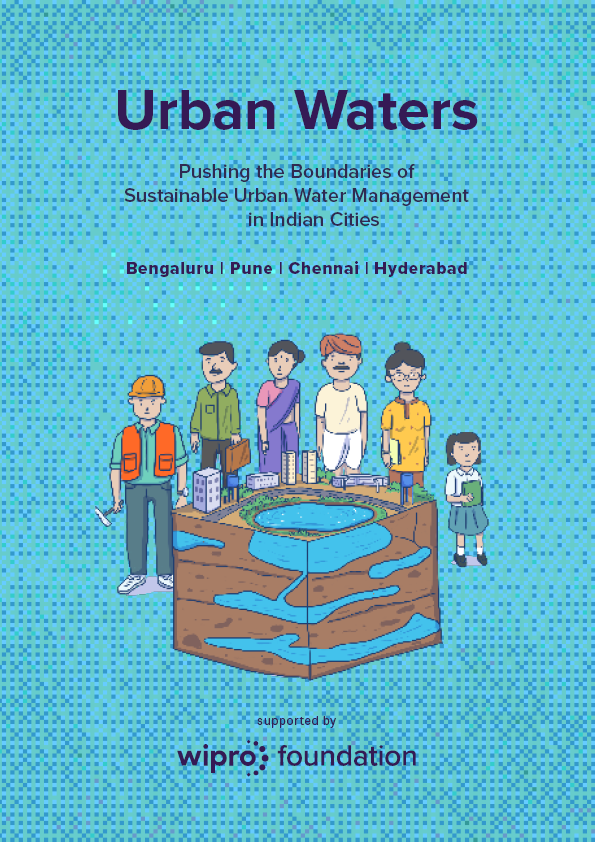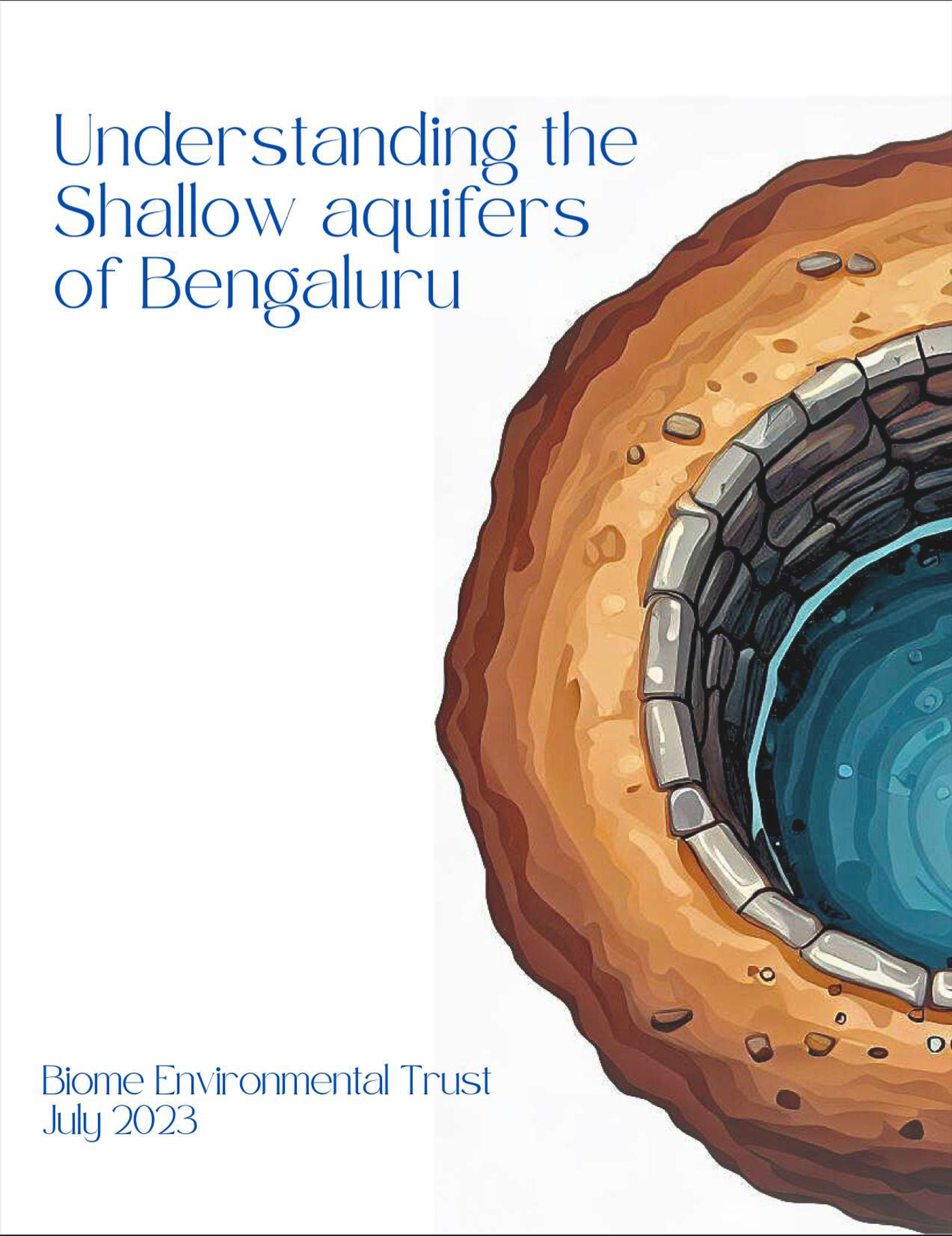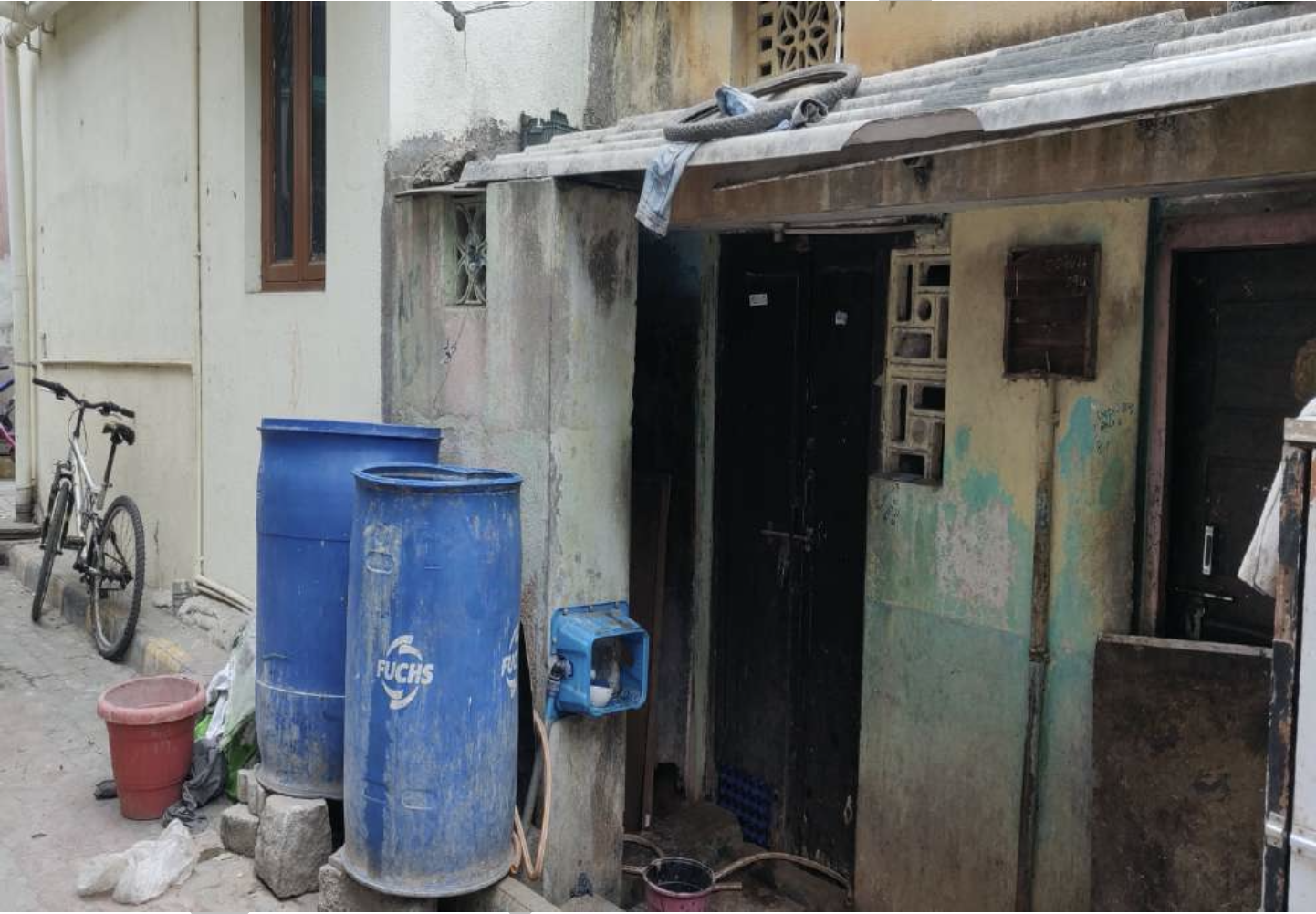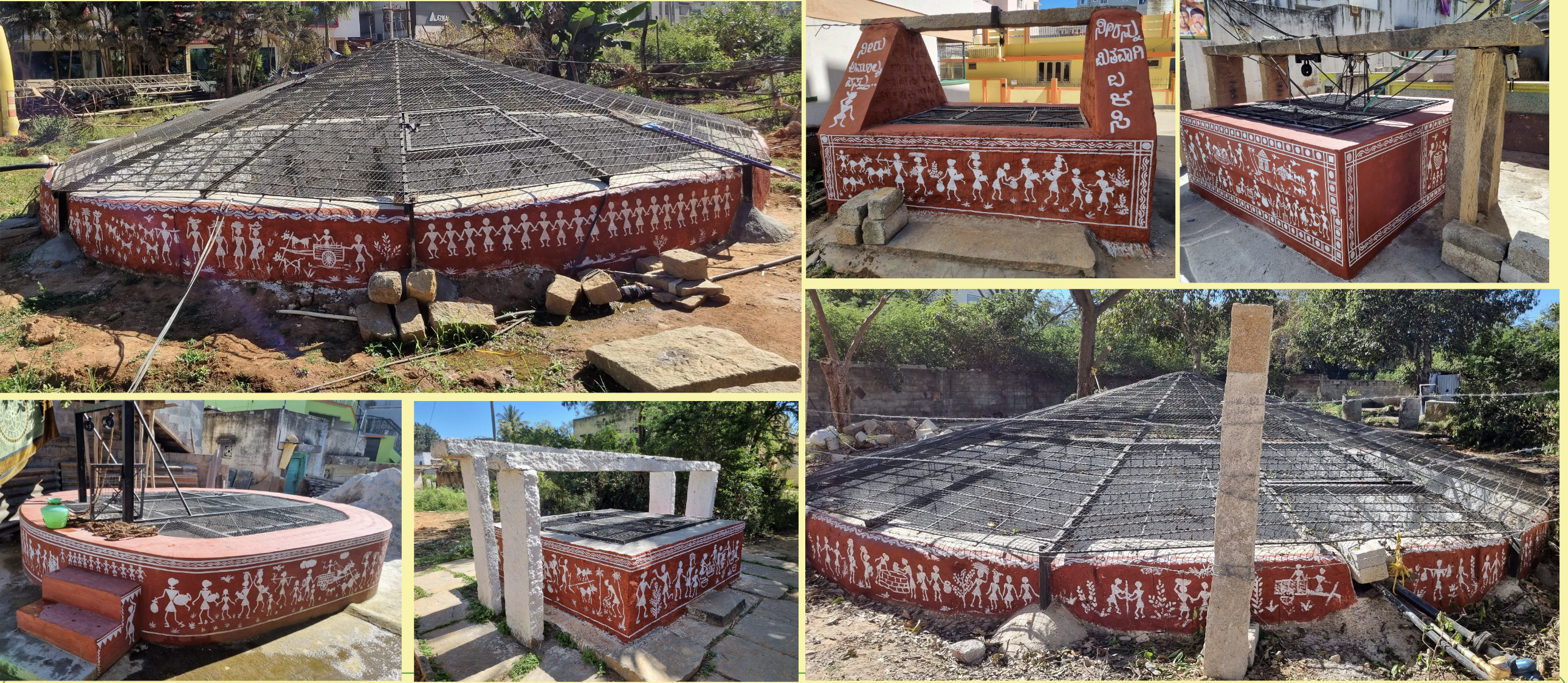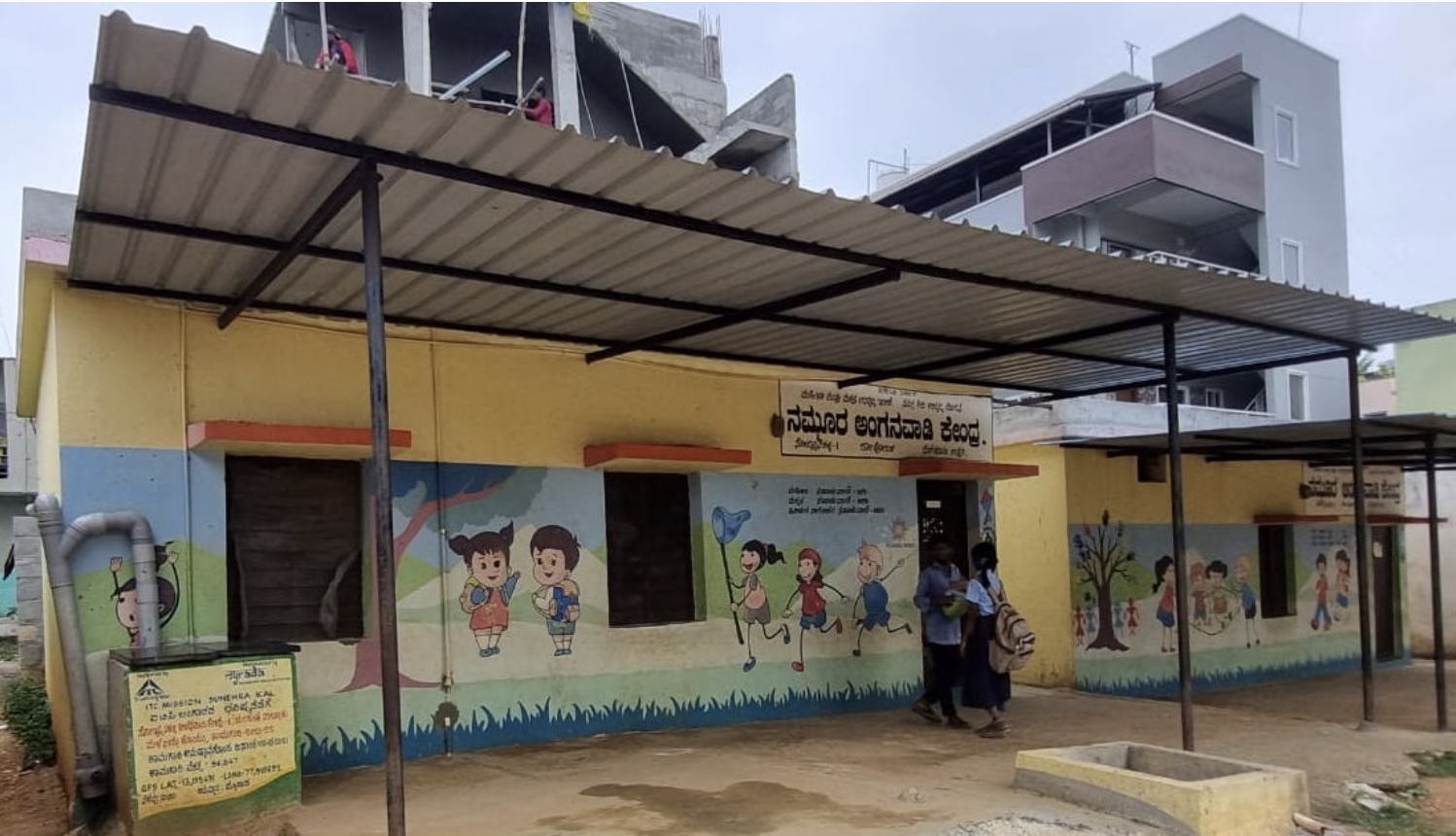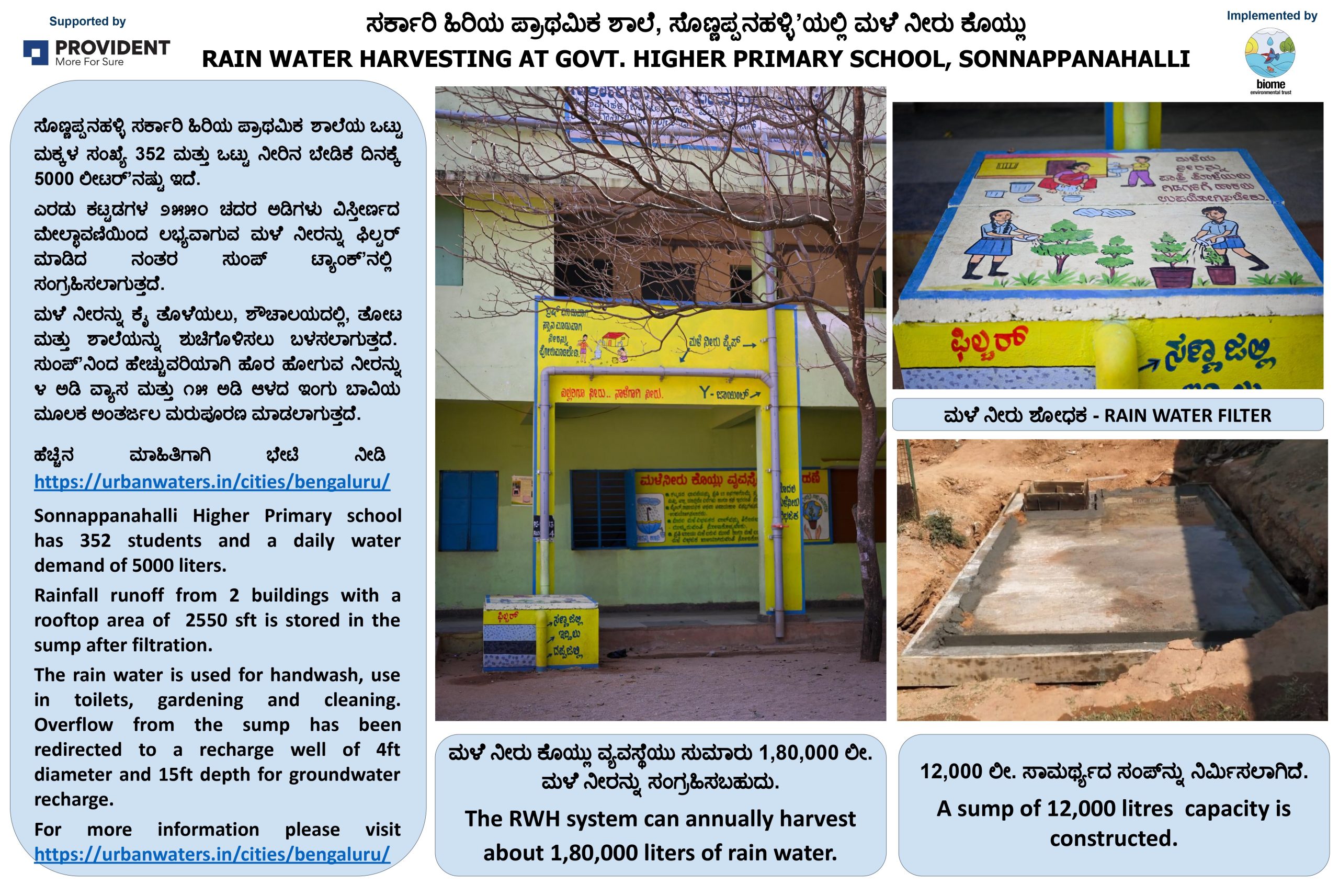Rainwater Harvesting & Groundwater Recharge Project at APD, Bengaluru

In 2021, Biome implemented a groundwater recharge project at the Association for People with Disability (APD) campus spread across a 5-acre property on Doddagubbi Road, Kothanur. The goal was to increase borewell yield by digging enough recharge wells and providing for storage tanks to harvest rainwater, thus reducing dependence and the total annual spend of Rs 4 lakhs on water tankers.
After implementing Biome’s suggested solutions, the dependence on water tankers was reduced from 4 to 1 per day, saving the organisation Rs 3 lakhs annually.

Challenges
LOCATION
The APD Kothanur campus is a green space with several trees and garden areas and is set on a plot of 5 acres with around 10 buildings, including a hostel, dining room/kitchen, classrooms, etc. There are around 40 staff and other workers working during the daytime.

KEY CHALLENGES
APD does not receive piped water from the Bengaluru Water Supply and Sewerage Board (BWSSB) and depends on in-house borewells and water tankers. To increase the borewell yield, the management decided to implement rainwater harvesting and groundwater recharge.
Water demand vs supply: The campus requirement for water is around 150 litres per person per day. The needs were met by 5 borewells, of which only one was being used regularly. The water was pumped for 15-20 minutes, around 4-5 times daily. The in-house borewells also failed to meet the water demand, with an additional 3-4 water tankers needing to be purchased, costing approximately Rs 4 lakhs annually.
Water treatment: There is no treatment plant, and the drinking water requirements are met by buying around 25 cans (20 litres each). An existing sewage treatment plan (STP) was set up in 2009 but hasn’t been used much in the last 8 years. Only part of the treated wastewater was used for plantation crops, and the rest was released into the stormwater drains.
Solution and Implementation
In 2020, APD approached Biome, and based on the existing situation and requirements, the following solutions were proposed and implemented over a period of a year.
Improved rainwater harvesting: The APD site has a rainfall endowment of nearly 20 megalitres (ML) annually. The annual rooftop runoff of 819 kilolitres (KL), if rainfall is normal, can meet 8% of the total annual water demand if adequate storage is provided.
After calculating the rainwater harvesting potential of the campus in adherence to BWSSB’s revised bylaws, the recommendation was to harvest rainwater from the hostel rooftop, canteen, Organic Waste Collector (OWC), and toilet buildings. The water is stored in sump tanks of 5000 litres. Water from the OWC and toilet building rooftops is stored in a rain barrel of 500 litres capacity after passing it through a simple plastic bowl filter and is used for the toilets.
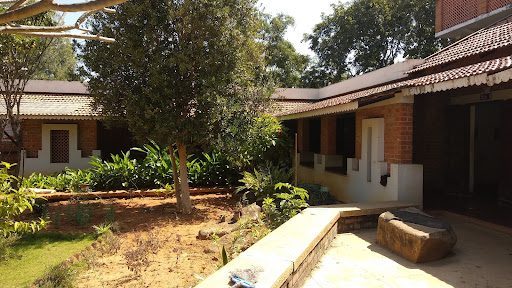

Implementation & analysis: Since the project was completed and implemented in 2021, every single drop of rainwater is stored and used, or recharged on the campus whenever it rains. This has resulted in increasing the yield of the functional borewell.
Post-implementation highlights*
- The borewell is put to use for 3 hours continuously, compared to the prior usage of 15-20 minutes 4-5 times a day
- Water tanker dependency reduced from 3-4 to 1 daily
- Cost saving of Rs 3 lakhs annually
* 2022 data
Recommendations for the future
- Usage of treated wastewater for gardening.
- Installing aerators on all taps to reduce the water demand on the campus.
- Installing a rain gauge to capture the rainfall data would be useful for planning horticulture.
- Desilting of the recharge wells every five years.
ADDITIONAL RESOURCES:
Watch this video of the water management interventions at APD
To access the long form of this project report, visit this link.
LINKS:
https://biomewatermanagement.in | http://biometrust.org | https://urbanwaters.in/
Contact: water@biome-solutions.com


